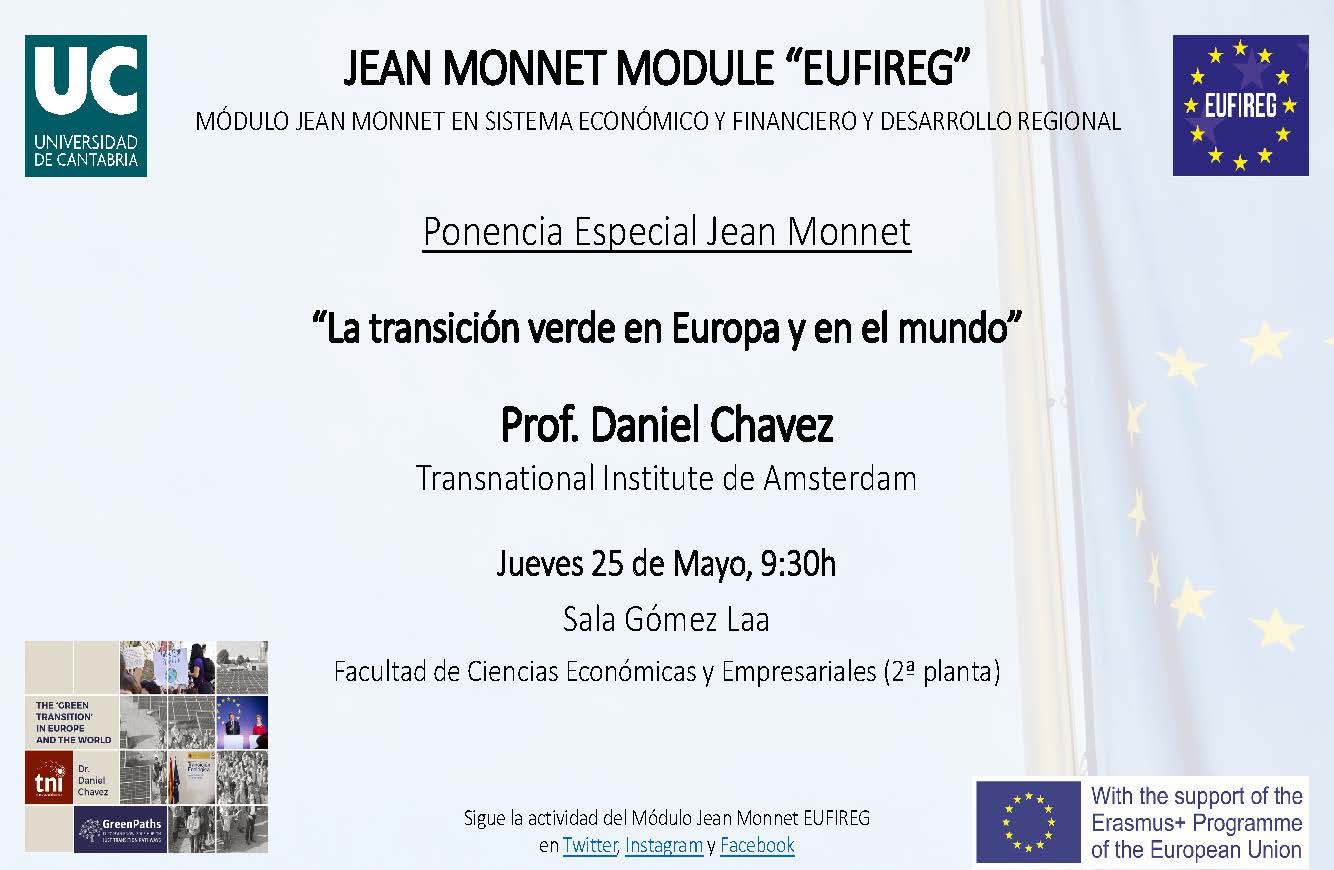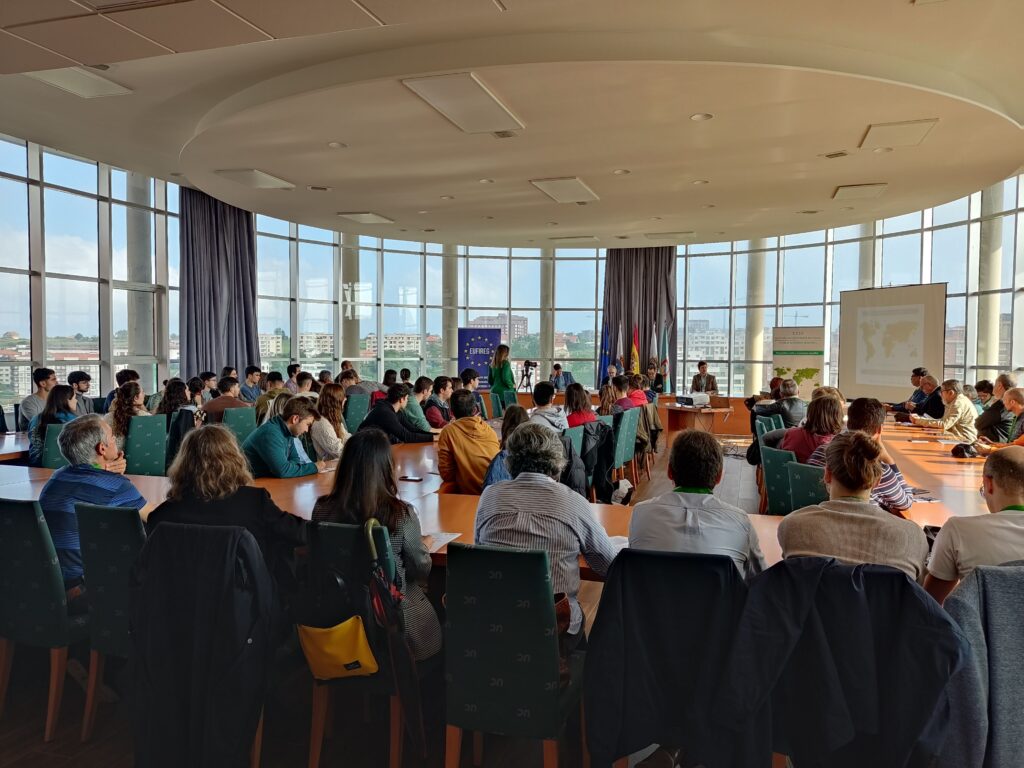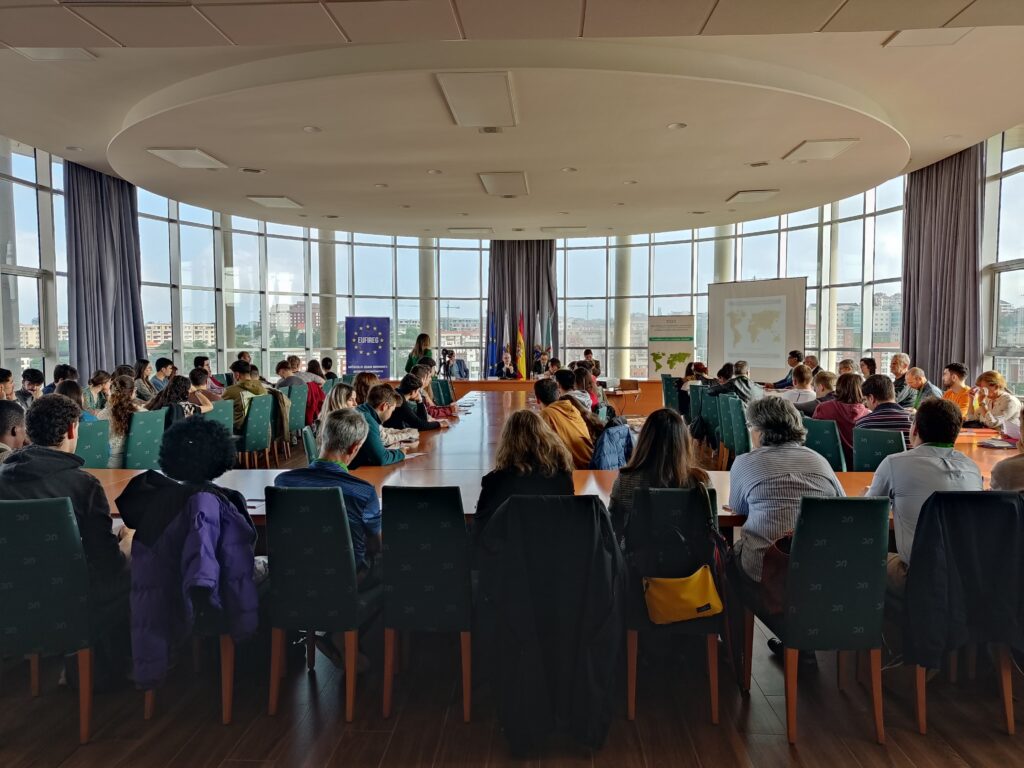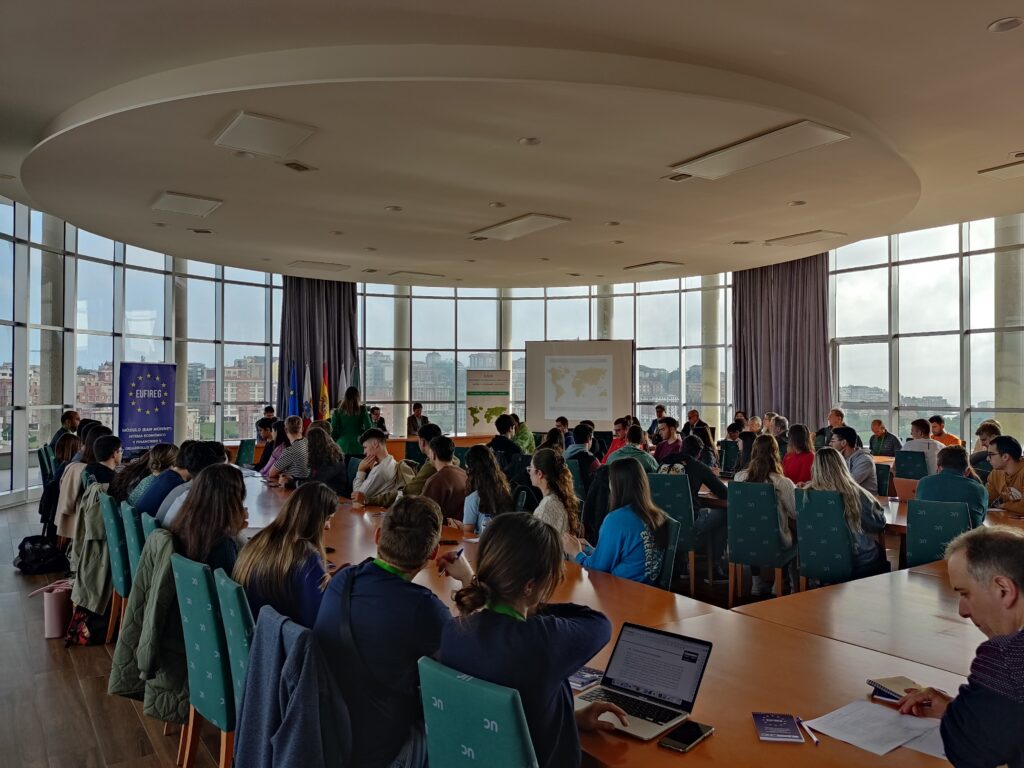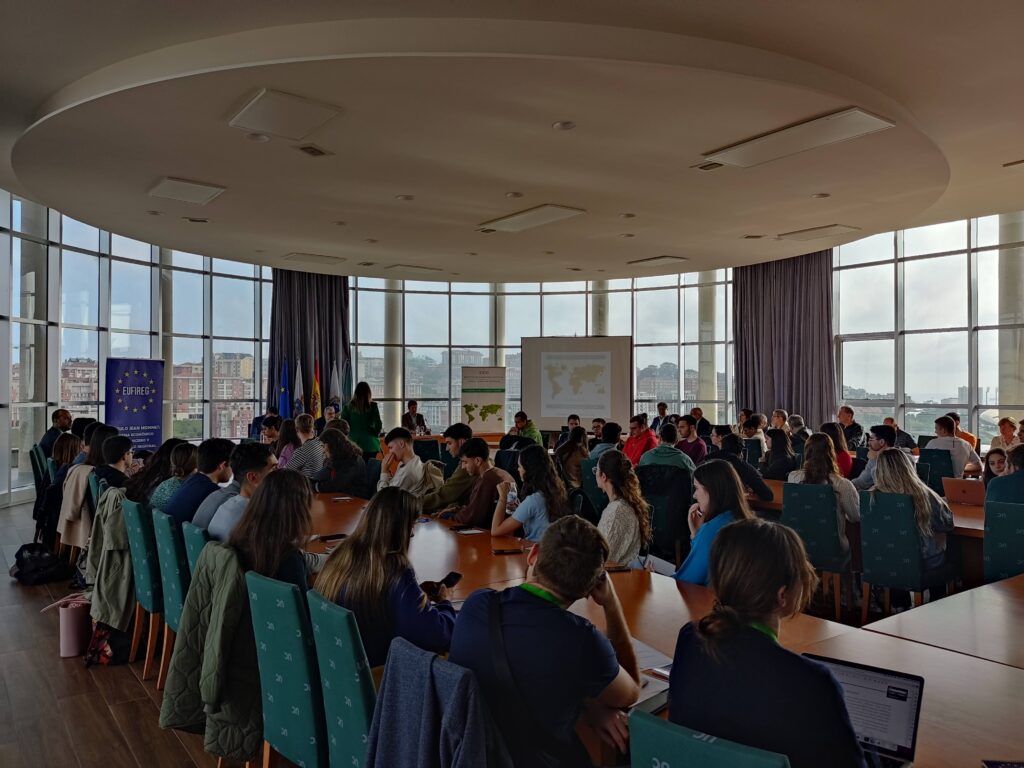On Thursday, May 25 at 9:30 a.m., the Jean Monnet Special Lecture took place in the Gómez Laa Room of the University of Cantabria, given by Daniel Chávez (Transnational Institute), entitled “The green transition in Europe and in the world”. The event, organized by the Jean Monnet Module on the Economic and Financial System and Regional Development (EUFIREG), constituted the inaugural conference of the XXIII World Economy Meeting, organized in Santander by the World Economy Society and the Applied Economics research group International and Economic Policy (ECONPOINT) and which was inaugurated by the Rector of the University of Cantabria.
Daniel Chávez is a Uruguayan political economist, co-coordinator of the Knowledge Hub Unit of the Transnational Institute (TNI), a research center based in Amsterdam and with ongoing projects in various countries in Europe and other regions of the world. He is also a Senior Research Associate in the Department of Anthropology and Development Studies at the University of Johannesburg, in South Africa. Graduated in Anthropology from the University of the Republic (Montevideo, Uruguay) and Master and Doctor in Development Studies from the Institute of Social Studies of the Erasmus University of Rotterdam (The Netherlands), he is the author and co-editor of several books on public policies and theory of the State, including The New Left in Latin America (2009), The Reinvention of the State: Public Companies and Development in Latin America and the World (2013), Rethinking the Public. State, society and basic services in Latin America (2019) and Public Water and Coronavirus: Black clouds and new opportunities (2021).
In his conference, Daniel Chávez addressed a highly relevant issue, such as the transition towards a green economy both in a European context and at a global level, addressing not only the economic implications of the transition process, but also its implications from the environmental, the political and the social point of view.

